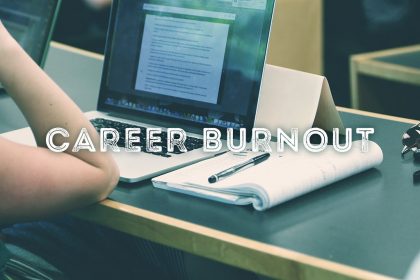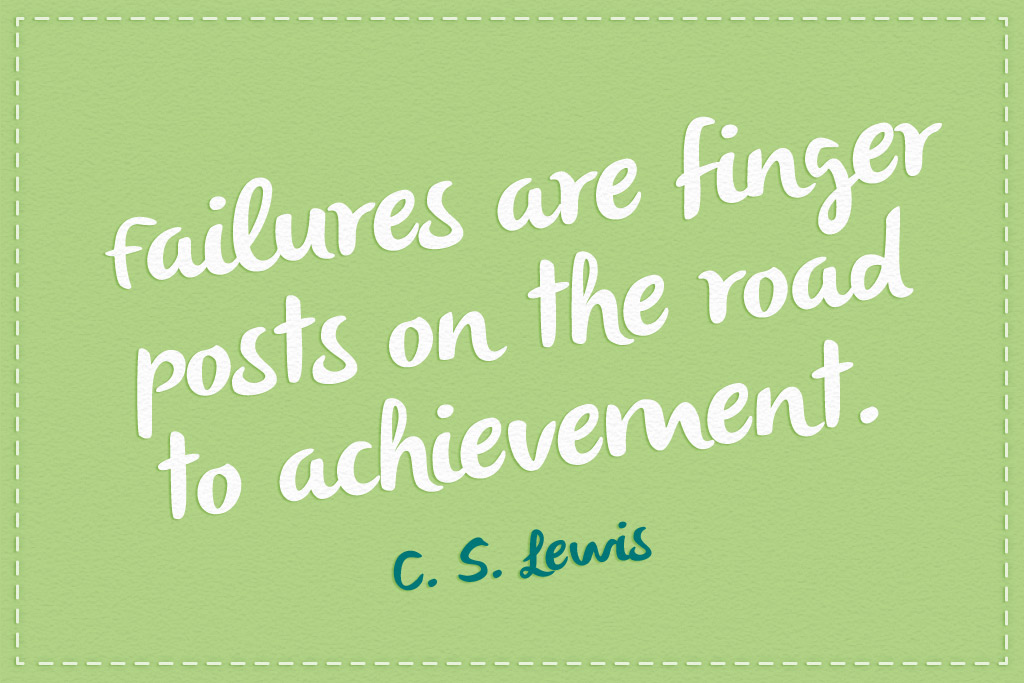Want to avoid burnout? Why you need to ditch perfectionism and embrace failure
Feeling burned out by work? Wondering how a change in environment can help prevent burnout? Find out why ditching perfectionism and fear of failure can help you get back on track again.
Have you reached to a point in your professional life where you feel worn out, exhausted, maybe even sick? Or felt that every day was a struggle? If so, you may be suffering from early-stages of burnout.
I began going through this early this year, just trying to make it from one day to the next – proud if I managed to make it through the week without getting sick.
And then it occurred to me that just getting through from day to day and surviving my work week isn’t the way that I wanted to live my life. After all, no one wants to just survive or make it through their life; we all want to thrive.
So how do we go from merely surviving to thriving? For me, one way was to overcome the evils of perfectionism.
Why good enough is better than perfect
Contrary to popular belief, perfect and productive are not synonymous. In fact, studies show that perfectionism actually tends to hurt productivity.
The desire to get every detail perfect results in slower, less-productive work. At the end of the day, done is better than perfect. That is not to say that we should let work quality drop, but it must be realised that work quality isn’t necessarily improved by getting something as close to perfect as humanly possible. And on top of all of that, we leave no room for improvement and growth.
Once I stopped trying too hard to achieve perfection and started to strive for continued growth and progress instead, things got a little better.
Doing it all vs doing it well
However, I then had to accept that not only could I not do everything perfectly, I also couldn’t do it all.
In our society, we – especially women – have the misconception that we need to be able to handle everything thrown our way, juggling countless balls without letting a single one drop. Unfortunately, the reality is that the more you add to the mix, the more difficult the juggling act becomes.
I thought that if other people can work a 40-60 hour work week and juggle personal life, family life, and other plans and ambitions, then I certainly could too. And then when I was on the verge of burnout and needed to reduce my work hours, I became frustrated with my own limitations and felt like a failure for not being able to do what others seemed capable of doing.
Sometimes wanting to do it all is really a matter of pride and not performance and we need to be a little more easy on ourselves when something is simply too much to take on.
Set boundaries and learn to delegate
This is why sometimes you just need to say no as well as let go. Set clear boundaries and learn that it is ok to say no to taking on something else if it is going to be too much.
Not being able to do everything doesn’t mean that you are a failure, it just means that you are human. Learning to listen to your threshold will make you more productive in the end – allowing you to focus on doing a few things very well instead of everything adequately.
And then for everything else, you need to learn to let go of control and learn to delegate. You wouldn’t hesitate to delegate to a spam filter for dealing with spam emails, so why not do the same with other tasks?
Giving up control from time to time will not only make things more manageable, boost your productivity, and improve the quality of the work being done. (Read tips on how to delegate successfully here.)
Stop the self-criticism
In the end, we need to stop criticising ourselves. In her TED Talk How To Lean In Without Burning Out (see below), Vanessa Loder mentions that “success doesn’t require a herculean effort.” She notes that we tend to think that we need to be under stress and pressure to perform well, and that if we aren’t working ourselves to the max, then we aren’t working hard enough.
But the truth is that working at 100% capacity will only lead to us running out of steam. And what is worse, we think that if we can’t give 110% and if we can’t do it all, then we are somehow worth less and a failure.
“Self-criticism is the biggest way we are holding ourselves back and keeping ourselves small,” says Loder. She adds that “self-compassion is a lot more productive and healthy.”
We need to accept that it’s ok to be human – instead of super-human – and know that this will actually give us better results. We burn ourselves out because we are working against self-shame. We need to do it all, do it perfectly, and never show any weakness or vulnerability.
We are terrified of failure and limitations, when really failure and limitations are the basis for innovation. As Kristen Race explains in her TED talk, “failure can serve as the basis for future challenges, and challenge is a stimulus for a productive, happy and meaningful life.”
Learning to say no to things and not feel guilty or inadequate for doing so actually shows more self-awareness and dedication than saying yes to everything.
Need more advice on burnout?
You can read more tips to help you here:










